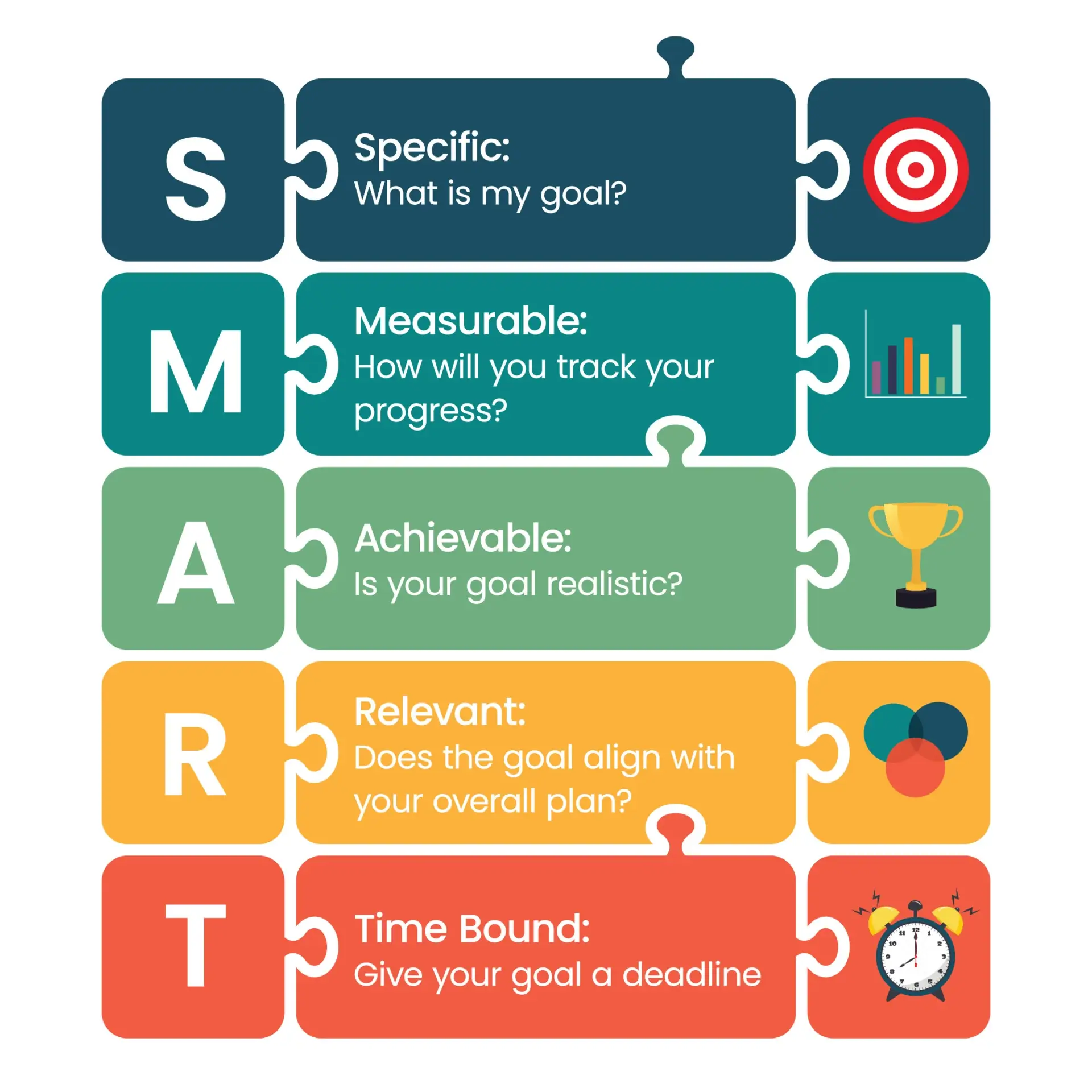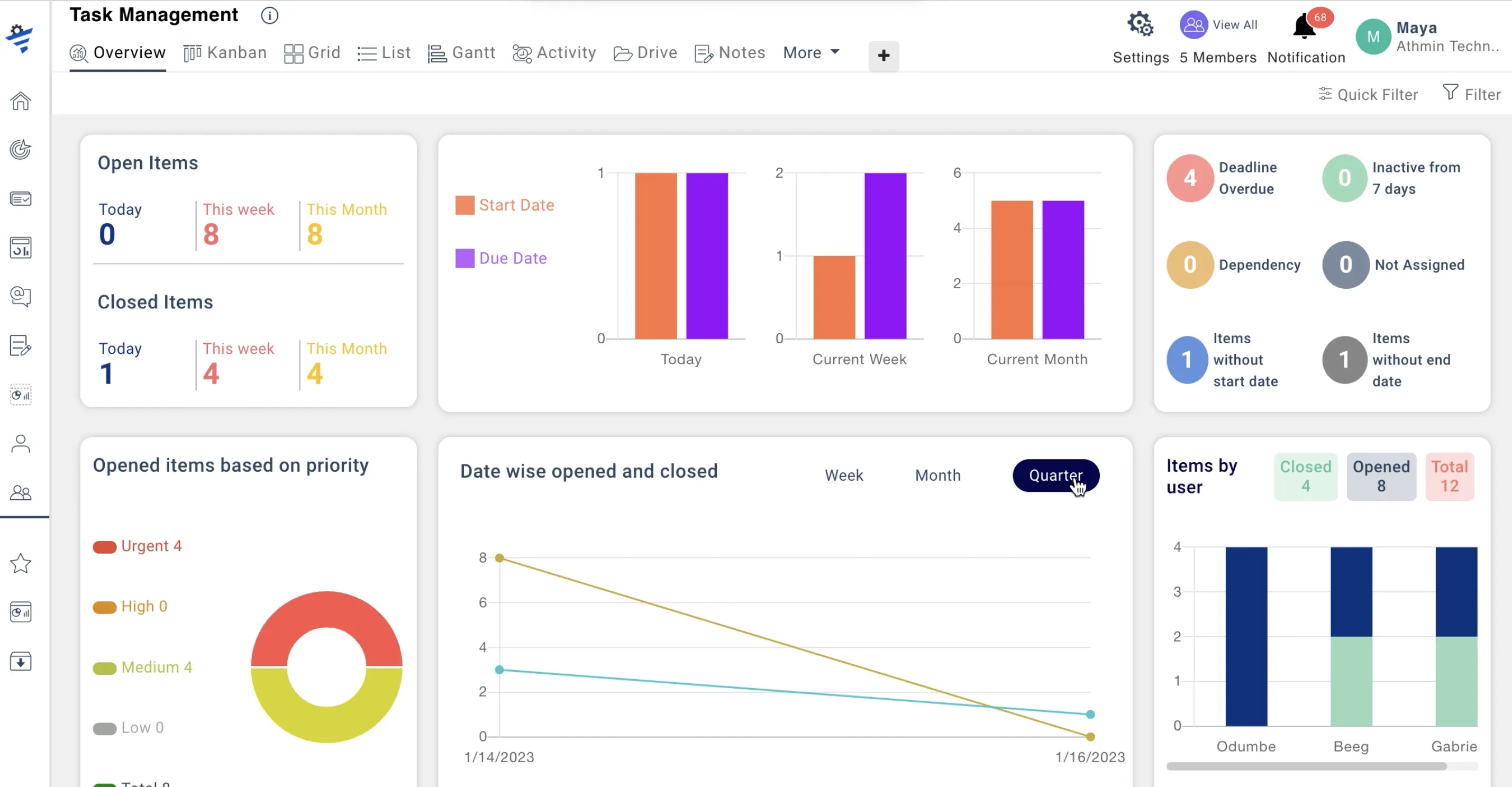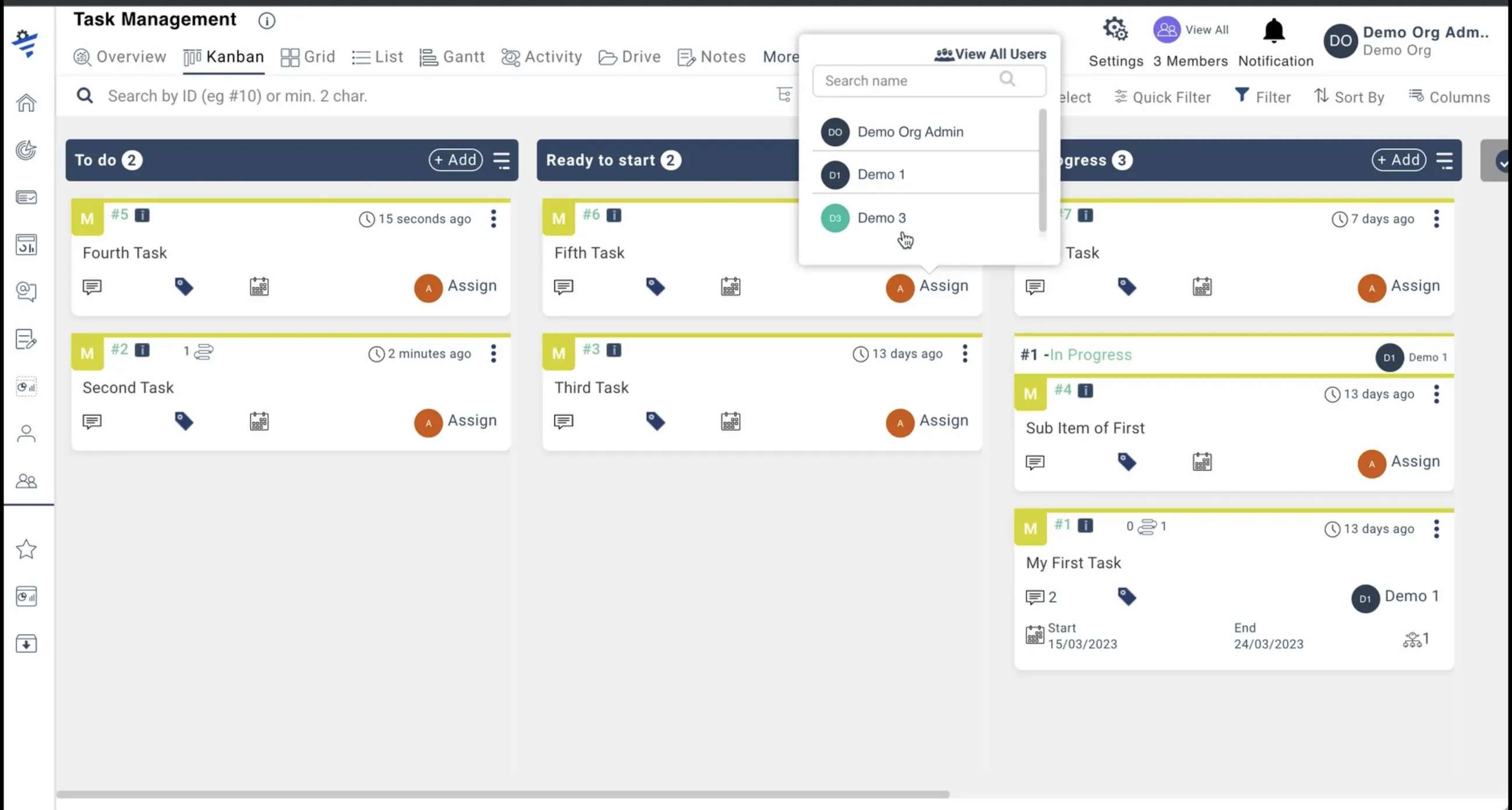Mastering Project Management - The Power of SMART Goals

Project management can be challenging and complex, requiring careful planning, execution, and monitoring. One effective way to ensure success in project management is by setting SMART goals. SMART goals are Specific, Measurable, Achievable, Relevant, and Time-bound. By selecting specific, measurable, achievable, relevant, and time-bound goals, you can ensure that your project stays on track and meets its objectives.
What are SMART Goals?

Specific goals:
- Identify what needs to be accomplished.
- Consider why the goal is important.
- Determine who will be involved in achieving the goal.
- Decide where the goal will be accomplished.
- Establish when the goal will be accomplished.
Measurable goals:
- Determine how progress towards the goal will be measured.
- Select metrics to determine success.
- Decide how progress will be communicated to stakeholders.
Achievable goals:
- Assess whether the goal is realistic given available resources.
- Determine whether the goal is achievable within the given timeframe.
- Identify any obstacles that need to be overcome to achieve the goal.
Relevant goals:
- Consider how the goal aligns with the overall project management strategy.
- Determine how the goal contributes to the overall project objectives.
- Assess the impact of achieving the goal on the project as a whole.
Time-bound goals:
- Establish a deadline for achieving the goal.
- Determine when the goal must be accomplished.
- Decide how progress will be tracked towards the deadline.
By setting specific, measurable, achievable, relevant, and time-bound goals, project managers can provide clarity and direction to their teams, minimize misunderstandings and confusion, and increase the likelihood of project success. Additionally, setting goals helps create a sense of urgency and motivates people to work towards the goal. Communicating the plans to everyone involved in the project is essential to ensure everyone is working towards the same objective. Regularly assessing progress toward the goals and making necessary adjustments is also crucial to ensure the project stays on track and achieves its objectives.
Creating SMART Goals for Project Management
When creating SMART goals for project management, it's important to consider the overall project management strategy and objectives. To apply the SMART framework to project management, consider the following tips:
- Start with the project management strategy: Before setting SMART goals, it's essential to have a clear understanding of the project management strategy and objectives.
- Collaborate with team members: Involve team members in the goal-setting process to ensure everyone is working towards the same objectives.
- Use data to set measurable goals to determine what needs to be accomplished and set quantifiable goals that align with the project management strategy.
- Set achievable goals: Consider the resources available and any obstacles that need to be overcome to set achievable goals.
- Ensure goals are relevant: Goals should be aligned with the overall project management strategy and objectives to ensure they are appropriate.
- Set deadlines for achieving goals to create a sense of urgency and motivate team members.
- Monitor progress: Regularly monitor progress toward achieving goals to ensure the project stays on track.
- Adjust goals as needed: If the project management strategy or objectives change, adjust them to remain relevant and achievable.
Common Mistakes to Avoid
When setting SMART goals for project management, there are some common mistakes to avoid. These include:
- Setting vague goals: Too vague goals can lead to confusion and misunderstandings, hindering progress towards achieving the goal.
- Setting unrealistic goals: Goals that are too ambitious or unrealistic can lead to frustration and demotivation, hindering progress toward achieving the goal.
- Not involving team members: Failure to involve team members in the goal-setting process can lead to misalignment and lack of buy-in, which can hinder progress toward achieving the goal.
- Failing to track progress: Failure to regularly monitor progress towards achieving goals can lead to missed deadlines and failure to achieve the goal.
How do we create SMART goals with Pronnel?
Every organization's success rides on Team's Productivity and ability to set, monitor and achieve common goals. However, the Team's productivity depends on the systems and solutions provided to them. Pronnel is the SMART Work Management tool that allows your TeamTeam set SMART goals with simple and easy steps. It unifies all communication, meetings, emails, memos, Chats, and Whats App on one platform without worrying about losing crucial information.
Assign Tasks

Create workflow, assign tasks and fix responsibilities, set deadlines, and get project status updates on the go. Our seamless and transparent process workflow makes goal setting simple.
Project Overview

Conclusion
Setting SMART goals is crucial to the success of any project management strategy. Pronnel is a SMART Work Management tool that simplifies the process of specifying and achieving goals for teams. With Pronnel, teams can create workflows, assign tasks, set deadlines, and monitor progress in one place, ensuring that their SMART goals are specific, measurable, achievable, relevant, and time-bound. By avoiding common mistakes and following the steps outlined in this blog, teams can ensure that their goals are practical and contribute to the overall success of the project management strategy. To learn more about how Pronnel can help your TeamTeam achieve its goals, call us today and cut the chase toward achieving your goals!
Subscribe To Our Blogs
Get the latest blog notification into your email.